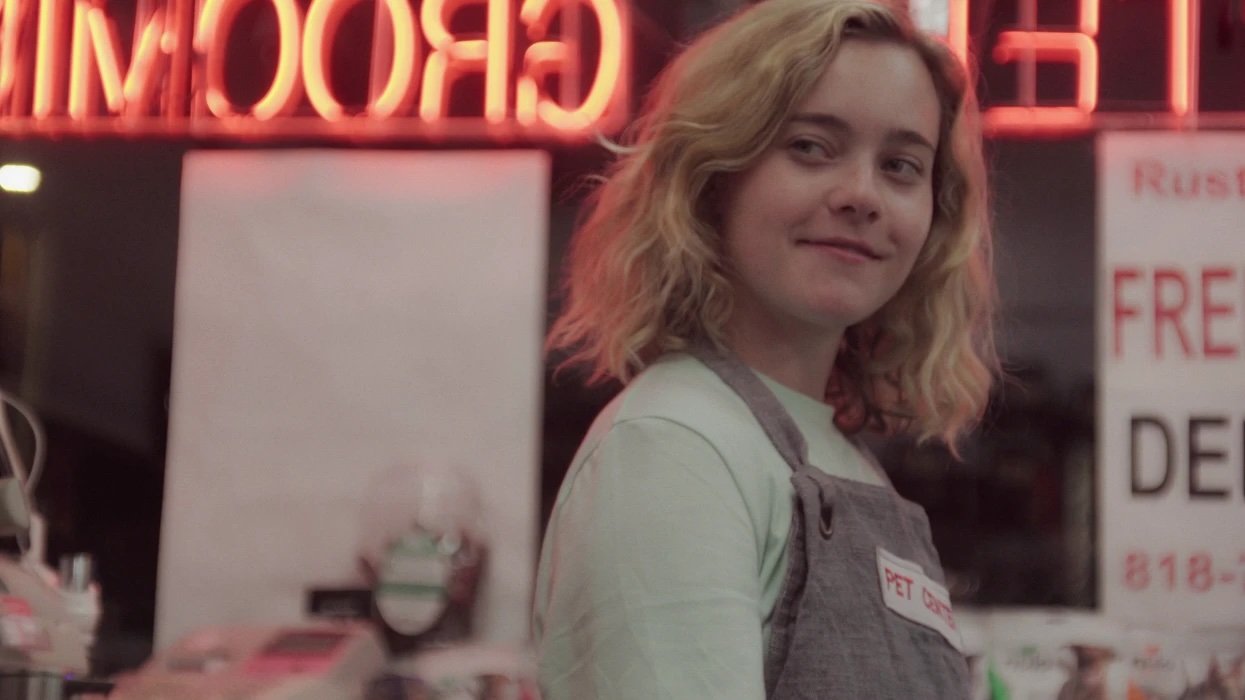“Addy Daddy” is Fresh & Familiar in the Best Way
Meeting the parents is an essential, nerve-inducing milestone in most relationships. Comedian John Mulaney has a joke about how nothing says things are going well in a relationship like bringing in “two older Catholic people." Addy Daddy’s barest description of its plot is one sentence: “A lonely young man introduces his new girlfriend to his parents and they immediately hate her for no reason.” And while that’s technically true, there’s so much just beneath the surface that makes that description both true and woefully misleading. Addy Daddy is a romantic comedy/drama with a quantum mechanical twist.
Lucas (Jared Treviño) is a loner architecture student who could happily spend all of his days on his own. His roommate (Allan Weedman) drags him to a party where he ends up on the same couch as Addison (Lexi Simonsen). The two hit it off and begin the tentative awkward dance of hanging out as friends, with the undercurrent of wanting more. Eventually, Lucas and Addison start dating, which leads them to the fateful meet-the-parents dinner. Over this meal, Lucas begins to second guess everything he thought he knew about himself, Addison, and their relationship.
Courtesy of Big Hug Picture and Sound
That brief synopsis describes only the first half of the film. Somewhere around the one-hour mark, Addy Daddy undergoes a quantum twist. A working knowledge of quantum mechanics isn’t necessary. You can think of the ideas the film is presenting in far simpler terms that have been at the center of romantic comedies for decades - what if? What if things were different? Does the flap of a butterfly’s wings have the ability to change the course of a person’s life? Addy Daddy will draw comparisons to Memento or Vanilla Sky for its use of memories and the fallible nature of our own brains.
So much of what works about Addy Daddy is the way it slowly reveals itself. The most impactful slow-burn development is Lucas’ relationship with his parents. We’re first introduced to it through shaky camcorder footage that seems to have been shot by Lucas as a child. We hear his dad screaming at his mom and we, along with Lucas, are watching from around the corner. There’s so much more than meets the eye, and writer/director Patrick VanZandt shows restraint while making the depth of Lucas’ dad’s abuse very clear. We see the way it affects Lucas’ relationship with his parents and Addison, as well as his career aspirations. It’s insidious, and the wide-reaching impact of his dad’s actions are well-threaded through the film.
Courtesy of Big Hug Picture and Sound
The main critique of Addy Daddy is that it’s about thirty minutes too long. The first hour flies by because of the grounded performances of Treviño and Simonsen. Their characters feel real, and the fights they’re having could have been plucked from anyone’s first serious, post-college relationship that’s weighed down by the ever-looming reality of the future. That transition from partying, hanging out, and sometimes studying to a real job and real bills is a brutal one. It’s even more difficult to manage when you put a fledgling relationship in the middle of it all. Lucas and Addy’s relationship is deeply compelling, and the film hits the nail on the head thematically about thirty minutes before it actually ends.
Addy Daddy is something of a marvel. It was shot for a meager $25,000 and proves that the answer to making compelling films does not lie in a large budget. Writer/director/co-editor VanZandt and fellow star/co-editor Weedman have created a film that’s stylistically lively. Their transitions and edits exist for utility, but also to develop a filmmaking language all their own. Addy Daddy is fresh, yet plays with instantly recognizable human dreams and desires. As one of the characters says toward the end of the film, “you just have to try your best, man.” That’s all anyone can ask for.
support your local film critic!
~
support your local film critic! ~
Beyond the Cinerama Dome is run by one perpetually tired film critic
and her anxious emotional support chihuahua named Frankie.
Your kind donation means Frankie doesn’t need to get a job…yet.
Follow me on BlueSky, Instagram, Letterboxd, & YouTube. Check out Movies with My Dad, a new podcast recorded on the car ride home from the movies.


